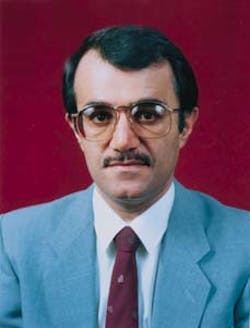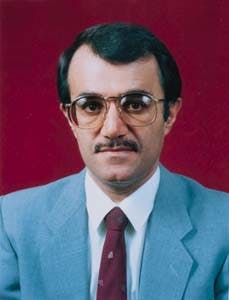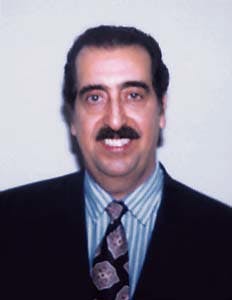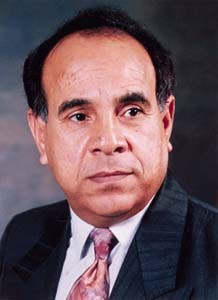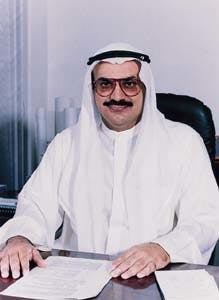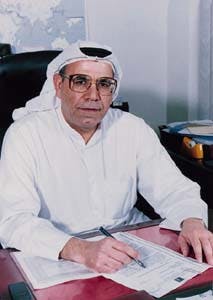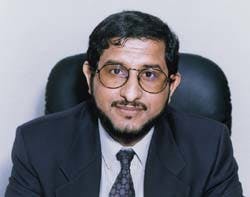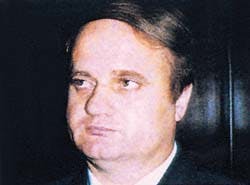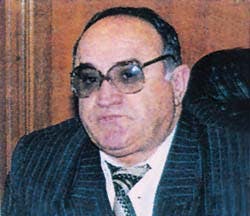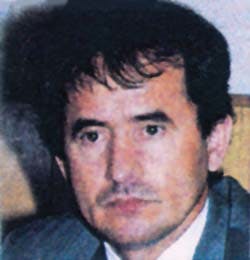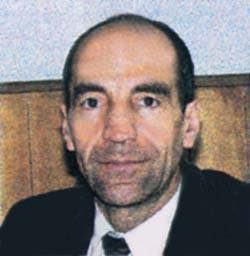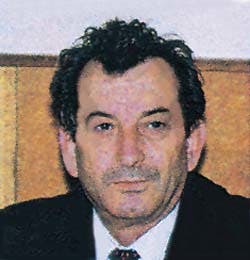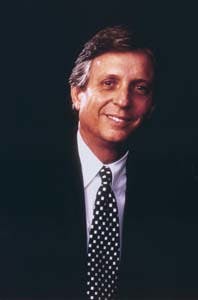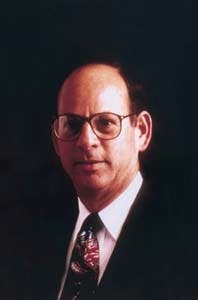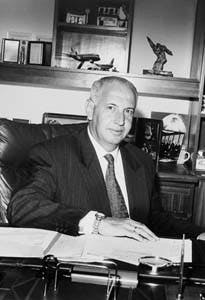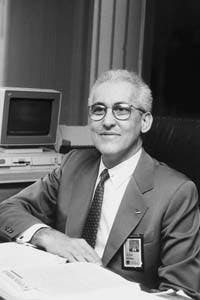State Oil Company Profiles OGJ SPECIAL Four State Companies Are Markedly Different
L.R. Aalund
Managing Editor -- Technology
The Journal continues its profiles of state owned oil companies with a return to the Persian Gulf, South America, and a first time look at the state oil company of Romania, one of Eastern Europe's most active and oldest producers. The government of Kazakhstan's activities are also covered in this report.
The Journal began this annual series in its Aug. 16, 1993, issue (pp. 37-70) and followed with a similar report Aug. 29, 1994. Thirteen companies have been profiled in these two issues.
These profiles detail the organization of the companies, with emphasis on upstream and downstream operations. Support functions, though essential to a company, are not covered in detail.
Company projects and capabilities are only described in this report when necessary to put the company in perspective.
Following are the profiles of state companies for Bahrain, Kuwait, Romania, and Venezuela.
Bahrain
The first act in the greatest oil play in history took place in the small island emirate of Bahrain in the Persian Gulf over 60 years ago, when oil was discovered at the foot of Jebel ad Dukhan on June 2, 1932. This find encouraged explorationists to look closely at nearby Saudi Arabia where in 1937 a successful wildcat discovery at Damman kicked off the development of the world's largest reservoirs.
Kuwait's Burgan field and Qatar's Dukhan field followed on the eve of World War II.
Though it is well down from its peak of nearly 80,000 b/d in 1970, Bahrain's Awali field is still producing and is a model of production longevity because of modern petroleum engineering practices employed by the state's Bahrain National Oil Co. (Banoco).
Banoco, handles all aspects of the oil industry in Bahrain: exploration to oil and gas production, distribution, refinery planning, local products distribution, and retail sales.
Banoco moves in total some 300,000 b/d of crude oil. In addition to its own production, Banoco markets 105,000 b/d of crude from Saudi Aramco's offshore Abu Safah oil field and imports 150,000 b/d of this crude as the state's share to the refinery. Banoco also has the capacity to produce and distribute over 1.2 bcfd of natural gas.
Fig. 1 (41676 bytes) shows how the state enterprises are organized. The Supreme Council of Petroleum determines and sets oil policy. A number of ministries and oil industry specialists are represented in the council, which is chaired by the prime minister.
The Ministry of Development & Industry is the authority concerned with the execution of the oil policy set by the Supreme Council. Yousuf A. Al-Shirawi is Bahrain's minister of development and industry and is chairman of the board of Bapco.
The Directorate of Oil Affairs is responsible for the control, measurement, and inspection of incoming and outgoing oil and exported products. It also has a role in the control of operations involving LPG.
The state bought in 1981 a 60% interest in the Bahrain Petroleum Co., which owns and operates a 250,000 b/d refinery in Bahrain and a six berth export terminal capable of taking vessels up to 100,000 dwt. Caltex Petroleum Corp. owns the other 40%. More than 95% of the refinery output is exported.
Following are some details on other companies shown in Fig. 1:
- Bahrain National Gas Co. (Banagas) is owned 75% by the government of Bahrain, 12.5% by Caltex, and 12.5% by the Arab Petroleum Investment Corp. The company's main activities are processing associated gas and supplying gas for local industrial use. The company has two gas processing trains with a combined capacity of 280 MMcfd.
- Bahrain Aviation Fueling Co. (Bafco) is the aviation refueling service at Bahrain International Airport. It is owned by Banoco, 60%; Caltex 27%; BP, 13%. However, Banoco and its partners sell fuels to individual airlines on their own account in separate sales operations.
- Gulf Petrochemical Industries Co. (GPIC) is a joint venture of Bahrain, Kuwait, and Saudi Arabia, with each holding a third interest. The company's plants in Bahrain make ammonia and methanol. A urea unit is planned.
Banoco
Fig. 2 (99710 bytes) is an organizational diagram of Banoco. The accompanying box gives more information on Banoco's management.
State Oil Company Profiles
Banoco management
Mohammed Saleh Shaikh Ali is the chief executive of Bahrain National Oil Co. He joined Bapco in 1964 when it was still a wholly owned subsidiary of Caltex. He held various positions, mainly in refinery process engineering, planning, and operations. His work included a long term assignment in 1976 in Caltex's head office in New York City. He was later assigned to Caltex's Australian oil refinery near Sydney where he became manager of technical services and process engineering.
In January 1981, after the government had bought a 60% interest in Bapco, Ali was appointed general manager of the government's oil refining and marketing interests. These interests were merged with the existing Banoco exploration and production activities in 1983, creating an expanded integrated company. In 1985 he assumed his present position and became chairman of Bafco.
Ali is also chairman of the committee on scientific research at the Bahrain Center for Research & Studies and chairman of the GCC chapter of the Gas Processors Association.
He earned a degree in chemical engineering in the U.K.
Adel K. Almoayyed is general manager of marketing and responsible for all of Banoco's marketing activities locally and internationally. After graduating from the University of Cairo in 1973 with a degree in geology, he joined Bahrain Petroleum Co. as a petroleum engineer and participated in a development program that included assignments with Caltex and Chevron Corp. in the U.S.
Almoayyed earned a BS in petroleum engineering at the University of Tulsa in 1977 and continued in petroleum engineering until he transferred to marketing in 1983 where he first worked as manager then deputy general manager. He was appointed to his present position in 1986.
Rashed M. Fakhro is general manager of finance and administration. After graduating from the American University of Cairo with a degree in economics and political science, he joined the local BP company in Bahrain where he held various jobs in marketing and public relations until he transferred to the Bahrain National Oil Co. in 1983. Fakhro was appointed to his present position in 1986.
A. Rahman A. Rahim Mohamed Ahmed is general manager of production and drilling. After graduating with a degree in geology and chemistry, he joined the Bahrain Petroleum Co. in 1974 as a trainee in the production and operating department. In 1976, he studied for a degree in petroleum engineering at the University of Texas in Austin. After graduating in 1978 he was assigned to the petroleum engineering department where he worked as a reservoir engineer, production engineer, and drilling engineer until he was sent on a development assignment with Caltex and Chevron in the U.S. in 1981.
Ahmed was appointed assistant manager of the production department in 1984 and then held other managerial posts in drilling and production. He was appointed to his present position in 1994.
Jalil Al-Samahiji is general manager of petroleum development and engineering. He joined the Bahrain Petroleum Co. as a well site geologist in 1970, after earning an MS in petroleum geology. He was then sent on a development assignment with Caltex and Chevron USA in mid-1970s where he worked in the Denver and San Francisco areas.
Al-Samahiji progressed to become head geologist and then chief geologist in 1979. In 1984, he was appointed manager of the exploration and development department where he remained until he was promoted to his present position in 1994. Al-Samahiji is a member of the Bahrain Society of Engineers and American Association of Petroleum Geologists, Society of Petroleum Engineers, the Bahrain Historical and Archaeological Society, and the Bahrain Natural History Society.
Abdul Rahman Abdulla A. Kamal is general manager of management services. He joined Bahrain Petroleum Co. in 1964 as an accounts clerk and through studies and vocational training became a senior accountant. He was then sent by the company to finish his academic studies in business in Britain.
In 1982, Rahman Abdulla was appointed manager, finance and administration department, in Banoco. He later served as manager and deputy general manager of internal audit and special studies. He was appointed to his present job in 1986. Rahman Abdulla is a member of the U.K. Institute of Internal auditors and a member of the Bahrain Society of Accounts and Auditors.
Kuwait
At first glance, Kuwait poses a confusing picture with eight state companies (three with similar names) with diverse mandates all under the umbrella of a parent company, Kuwait Petroleum Corp. (KPC). They employ some 13,000 persons, with Kuwaiti nationals accounting for 66% of the total. All the companies are making efforts to reduce the number of expatriates.
KPC is an autonomous company with headquarters in Safat (Kuwait City). However, its chairman is the country's oil minister, Dr. Abdulmohsen Medej Al-Medej.
The KPC board was expanded from 10 to 13 members, according to the company's most recent annual report, covering fiscal year 1993/1994 (July through June). Seven of these board members are managing directors of operations covering planning and international operations, administration, refining, marketing, petrochemicals, production and exploration, and transportation (Fig. 1).(121074 bytes)
Two of these board members hold the position of chairman and managing director of the two most important subsidiaries of Kuwait Petroleum Corp. They are Kuwait Oil Co. (KOC), headed by Khaled Yousef Al-Fulaij and Kuwait National Petroleum Co. headed by Ahmad Abdul Muhsin Al-Mutair.
Other companies are: Petrochemical Industries Co. (PIC), Kuwait Oil Tanker Co., Kuwait Foreign Petroleum Exploration Co. (Kufpec), and Kuwait Petroleum International (KPI, London). Kufpec handles upstream activities while KPI oversees two refineries, one in The Netherlands, the other in Denmark.
Ammonia and urea are the only petrochemicals PIC now makes, but the company is in a preliminary stage in a joint venture olefins complex for Kuwait.
KOC handles the country's domestic exploration and production; KNPC domestic refining. Both suffered mightily under the Iraqi invasion and 7 month occupation. Refineries at Mina Abdulla, Mina Al-Ahmadi, and Shuaiba were also heavily damaged and shut down. By last year, the refineries had been rebuilt, and the restored plants had a combined capacity of 690,000 b/d. Last year, KNPC said 100,000 b/d of capacity would be added to the 305,000 b/d Al-Ahmadi refinery this year.
The company did not furnish information on its managerial staff because of apparently recent extensive changes.
KOC
Kuwait produced nearly 1.6 million b/d in 1989, then dropped markedly in 1990 as a result of the invasion by Iraq in August 1990. In 1991, the Iraqis set fire to 700 oil wells which gushed blazing crude oil. Some 50% of storage capacity was lost and export facilities were destroyed. Production which began again later in the year averaged only 138,000 b/d for the year. But KOC brought production back to 2.2 million b/d in September 1993. The company subsequently dropped output back to 2 million b/d to stay in line with the Organization of Petroleum Exporting Countries (OPEC) quota.
Fig. 2 (93256 bytes) shows the company's directorates or divisions which are headed by four executive assistant managing directors. Company headquarters are at Ahmadi, Kuwait. Not shown on the chart are directorates for management support and legal affairs (See accompanying box for list of managing directors and managers and background notes).
The next lower tier focuses on the operational functions of the company.
Not shown on the chart are three departments under the planning and development directorate. The departments and their managers are: production development, Abdul H. Shehab; planning , Farouq H. Al-Zauki; and systems development, Ahmad G. Murad.
Also not shown on the chart are three departments under the operational services directorate. They and their managers are: commercial affairs, Nasser H. Bourkhadour; industrial services, Fahed S. Al-Ajmi; and engineering, Ahmad A. Mohammed.
State Oil Company Profiles (366680 bytes)
Kuwait Oil's management
Khalid Y. Al-Fulaij is chairman and managing director of Kuwait Oil Co. He began his career with the company as a mechanical engineer in 1975 and advanced to manager of the engineering group in 1980. In 1983, he became deputy managing director of operational services. Al-Fulaij held this post until 1987 when he was named deputy chairman of the board and deputy managing director of operational services. He assumed his present position in 1992.
Al-Fulaij studied at the universities of Ohio and Oklahoma and holds a BS degree in mechanical engineering.
Yacoub Y. Al-Doub is executive assistant managing director of administration. He joined the company in 1969 as an assistant engineer. He subsequently had supervisory positions in safety and conservation, telecommunications, and industrial services. In 1980, Al-Doub became manager of engineering. He was named deputy managing director of administration in 1987 and assumed his present position in January of this year.
Al-Doub graduated in 1969 from Western Michigan University with a BS degree in industrial engineering.
Faisal A. Al-Jassem is executive assistant managing director of operations. He went to work for the company as an assistant petroleum engineer in 1971 and in 1977 moved into supervisory positions in petroleum engineering. Al-Jassem was named manager of production development in 1980 and held this post until he became deputy managing director of operations. He took his present post in January 1995.
Al-Jassem graduated from the University of Pittsburgh in 1971 with a BS in petroleum engineering.
Mohammed A. Al-Jazzaf is executive assistant managing director of operational services and deputy chairman of KOC. He went to work for the company in 1975 as an assistant engineer. He held supervisory positions in maintenance from 1980 to 1987, when he became manager of the maintenance group. Al-Jazzaf was deputy managing director of operational services from 1992 until January 1995 when he assumed his present position.
Al-Jazzaf studied at the universities of Ohio and Oklahoma and earned a BS in mechanical engineering in 1975.
Ahmad R. Al-Arbeed is executive assistant managing director of planning and development. He joined the company in 1977 as an assistant petroleum engineer. He held supervisory positions in production related areas from 1982 until 1991 when he was made manager of planning. In 1992, Al-Arbeed was named deputy managing director of planning and financial affairs and appointed to the board. He was deputy managing director of planning and development from 1994 until January 1995, when he was named to his present position. Al-Arbeed earned a BS in petroleum and natural gas engineering in 1977 from Pennsylvania State University.
Romania
Romania is one of the oldest oil arenas in Europe, with commercial production going back over 130 years. It was a critical source of crude oil for Germany during both world wars. However, the country's oil importance faded as the first waves of Middle Eastern and then North Sea production poured into Europe in the post war years.
Also during this period, the industry, though still viable, became frozen in technological time under one of Europe's most entrenched Soviet Bloc regimes. The International Energy Agency says Romania still holds the best exploration prospects in eastern Europe.
Now there are signs the Romanian industry is on the move again under its new state company, the Romanian Petroleum Corp., or Petrom R.A., which is headquartered in Bucharest.
Petrom, an autonomous company founded in 1991, is charged primarily with finding and producing oil and natural gas onshore and in the Black Sea. It also has the responsibility for research and design activities in exploration and production and can enter into foreign ventures. It is now using advanced techniques and working with western service companies.
The refining sector is headed by another state company, Rafirom, which has 10 refineries, with a total capacity of some 600,000 b/d but is plagued by over capacity and obsolescence.
The government has announced plans to restructure the refining industry and put it and other energy monopolies under a single umbrella company (OGJ, June 19, 1995, p. 27).
There has been some foreign participation in Romanian exploration but it has been slow to develop.
Petrom
In 1993, Petrom said it added 24 million bbl of oil reserves. Total crude reserves are estimated to be some 1.4 billion bbl (OGJ Apr. 4, p. 37). The company reported it produced about 130,000 b/d (6.7 million tons) of crude in 1994 and 6.2 bcf of gas. Romania's crude production in 1984 was some 40% higher than in 1994, according to Petrom statistics.
Petrom launched an intensive seismic program last year, shooting 18,190 km, of which 296 sq km was 3D on the continental shelf of the Black Sea.
The Black Sea, where Petrom is carrying out development work in the Lebada West field and the Eocene gas field, is considered one of the hottest areas by the company.
Management
Fig. 1 (113483 bytes) shows the organization of Petrom, which has over 60,000 employees. The seven member administration board is made up of directors of and representative from various ministries such as finance and education, a university dean, and the head of an employers association.
The directors currently running the major divisions are listed in the accompanying box.
The Institute for Research & Technology (ICPT) works in all areas of the exploration , drilling, and production sectors.
Venezuela
Petroleos de Venezuela S.A. (Pdvsa)(198852 bytes), which will celebrate its 20th anniversary next week, has transformed itself from a collection of domestic companies into a major international oil company over the past two decades.
It got off to a running start in January 1976 when the government of Venezuela, a leader in the movement to form the Organization of Petroleum Exporting Countries, nationalized its oil industry and put it under the wings of Pdvsa. Fig. 1 (113483 bytes shows the consolidations that have occurred since then, when six out of seven of the world oil giants of that time dominated the country's industry upstream and downstream.
During the intervening years, as Fig. 1 shows, three integrated domestic oil companies evolved. They in many ways initially retained the corporate cultures and technology traditions of their big ancestors, giving Venezuela probably the most diverse of all state enterprises. They employ 38,500 of the nearly 47,000 persons employed by Pdvsa and its subsidiaries.
With its domestic and international holdings, Pdvsa is now the world's third largest refiner, controlling capacity of 2.4 million b/d evenly split between Venezuela and overseas operations.
The company now claims proved crude oil reserves of 64 billion bbl; natural gas reserves of 140 tcf. The company produced 2.54 million b/d of crude in 1994 and exported 1.7 million b/d of this. It also exported 649,000 b/d of refined products, 37% of which was residual fuel oil.
The company expects to raise production to 4.3 million b/d by the year 2003. A Pdvsa subsidiary also produces 2.1 million metric tons/year of a stable emulsion of bitumen and water for burning in power plants trademarked Orimulsion. The company expects output of this to increase to 20 million tons by the year 2003.
Pdvsa's petrochemical arm is Pequiven S.A., a home grown company with no foreign ancestor. It evolved from the Instituto Venezolano Petroquimica. The company has a major complex at El Tablazo on Lake Maracaibo and produces basic petrochemicals and derivatives. Its gross production in 1993 was 5 million metric tons which is slated to double over the next decade.
The winds of privatization are not blowing around Pdvsa but the company is making major moves in opening the country's producing sector to foreign companies. One program already under way invites participation by companies in the rejuvenation of older fields.
In July, the Venezuelan Congress approved an exploration agreement that will permit qualified foreign companies to participate as partners with the state in the exploration and development of 4.5 million acres. Pdvsa kicked off the process last month with presentations in Caracas, Houston and London.
The company will revive an old company, Corporacion Venezolano del Petroleo, (CVP on Fig. 1) to become the joint venture partner of the participating foreign companies.
State control
The president of Venezuela appoints the president of Pdvsa, its two vice-presidents, and its 12 directors (eight principal directors and four alternates).
Policy guidelines are developed by close cooperation and discussions between Pdvsa and the Ministry of Energy & Mines, which bears the final political responsibility. The president of Pdvsa reports to the minister of Energy & Mines. However, the president of Pdvsa is a member of a group of economic advisors on macro economic issues to the ministry.
Management
Key executives in Pdvsa's management scheme are its coordinators. They with their respective staff, plan, coordinate, and control the activities of Pdvsa subsidiaries in Venezuela and overseas. They conduct a thorough review of the objectives of the corporate business plan and evaluate the achievements of the subsidiaries.
Budgets are submitted annually to the various coordinations. The coordinators report to a member of the board of directors and work through management committees set up for various fields of responsibility, such as production and marketing strategies. Members of the board of directors, the president, and/or vice-presidents of the corporation are on these committees.
The board examines and evaluates projects submitted and allocates the financial resources.
The accompanying box, with pictures, names the top executives of Pdvsa and its coordinators, excluding those involved with support and financial functions. Except where noted, all the appointments for current positions were made in November 1994.
Following are the presidents of Pdvsa's major petroleum subsidiaries: Ralph Cunningham, Citgo Petroleum Corp.; Guillermo Archila. Corpoven, S.A.; Julius Trinkunas, Lagoven, S.A.; Emilio Abouhamad, Maraven, S.A.
Arnold Volkenborn heads the petrochemical company, Pequiven, S.A., while Francisco Pradas is president of Intevep, S.A., the company's research and development arm.
Pdvsa's top management
In 1981, Giusti was assigned to Pdvsa as coordinator of the Orinoco Oil Belt program. Concurrently, he was coordinator of Venezuelan energy and petroleum contacts with the U.S. Department of Energy and with Germany's technology ministry. He returned to Maraven in 1985 as general manager of the refining division. Two years later, Giusti became a director of Maraven in charge of exploration, production, and corporate planning; then, in 1990, strategic planning coordinator for Pdvsa. In 1992, he was named to Pdvsa's board of directors and later to vice-president of Maraven. Giusti graduated from Zulia University in 1966. In 1971, he earned a master's degree in petroleum engineering from the University of Tulsa. Giusti has been a postgraduate professor in Zulia University's School of Petroleum and has been active in the Venezuelan College of Engineers and the Venezuelan Association of Executives.
Claus Graf is one of the two vice-presidents of Pdvsa. He started his career in 1962 with then Standard of New Jersey's (now Exxon) Creole Petroleum Corp., which became Lagoven in 1976. He has held numerous posts in production, geology, human resources, and in significant exploration projects. Graf was named Pdvsa's exploration and production coordinator in 1990. He became vice-president of Corpoven in 1991. He graduated from the Central University, Caracas, in 1962.
Graf earned master's and PhD degrees from Rice University, respectively, in 1966 and 1968. He is a member of the Venezuelan College of Engineers, the Venezuelan Society of Geologists, the Venezuelan Association of Geology, Mining and Oil, and the American Association of Petroleum Geologists.
Luis Urdaneta is vice-president of Pdvsa. He began his career in Creole Petroleum Corp.'s production department in 1963. From 1980 to 1983, he was executive manager of a project to modify Lagoven's Amuay refinery and at the same time was appointed refinery manager. Later, he was named general refining manager of Lagoven.
In January 1985, Urdaneta was named to the board of directors of Pequiven and held similar positions at Intevep and Bariven until 1986 when he was appointed president of Carbozulia, Pdvsa's coal subsidiary. In 1992, he was appointed vice-president of Lagoven.
Urdaneta graduated with a degree in petroleum engineering from Zulia University in 1963. He earned a master's degree in engineering in 1966 and a computer science degree in 1968, both from the University of Pennsylvania.
Ronald Pantin is corporate planning coordinator. He began his career with Maraven in 1977 in the production division. After various assignments with Pdvsa and Maraven, he became production division manager at Maraven, then in 1989 corporate planning manager of the company. In February 1994, Pantin was appointed advisor to the president of Pdvsa. He earned bachelor degrees in petroleum engineering and management science from Mississippi State University in, respectively, 1974 and 1975.
Pantin was awarded masters' degrees in petroleum engineering and industrial engineering from Stanford University in 1976 and 1977.
Juan Szabo is exploration and production coordinator. After working for Baker Oil Tools in Houston, he joined Creole Petroleum in 1972. Following assignments in production and finance for Lagoven and Pequiven, he became manager of Lagoven's offshore operations in 1978. Following other managerial assignments in Lagoven, Szabo was appointed manager of the international downstream investment project in 1985.
Szabo holds a mechanical engineering degree from the University of Houston and a master's degree in the same discipline.
Humberto Vidal has been manufacturing coordinator since 1990. He joined Creole Petroleum in 1960 and worked in different positions in research and development, process engineering, operations, and planning. In 1978, he was appointed manager in Lagoven's corporate planning department.
In 1980, Vidal was appointed Lagoven's manager of refining. He moved to Pdvsa in 1983 as refining coordinator. In 1986, he was nominated to the board of directors of Maraven and then in 1988 President of Refineria Isla (Curacao), S.A.
Vidal was a member of the supervisory board of AB Nyns Petroleum and is a member of the executive committee of UNO-VEN.
He graduated from Rensselaer Polytechnic Institute with a BS in chemical engineering in 1960.
Eduardo Blanco is trading and supply coordinator. He joined Maraven in 1977 and occupied a series of supervisory and management positions until 1990 when he was appointed to the board of directors of PDV Marina, Pdvsa's subsidiary in charge of marine transport.
Blanco was subsequently appointed to the board of directors of Maraven. In April 1994, he was named Pdvsa's strategic planning coordinator. He holds an economics degree from Universdad Catlica Andrs Bello. He also earned master's and PhD degrees in economics and minerals from Penn State University.
Francisco Anzola is technical resources coordinator. He began work for Creole Petroleum in 1966. He has held various managerial positions, including project manager, for the development of the southern part of Monagas and Anzotegui.
Anzola was promoted to Lagoven's general production manager in 1988 and named to the company's board in May 1990. He was appointed to his current position in September 1994. He holds a degree in mechanical engineering from the Universidad Central de Venezuela.
Copyright 1995 Oil & Gas Journal. All Rights Reserved.
